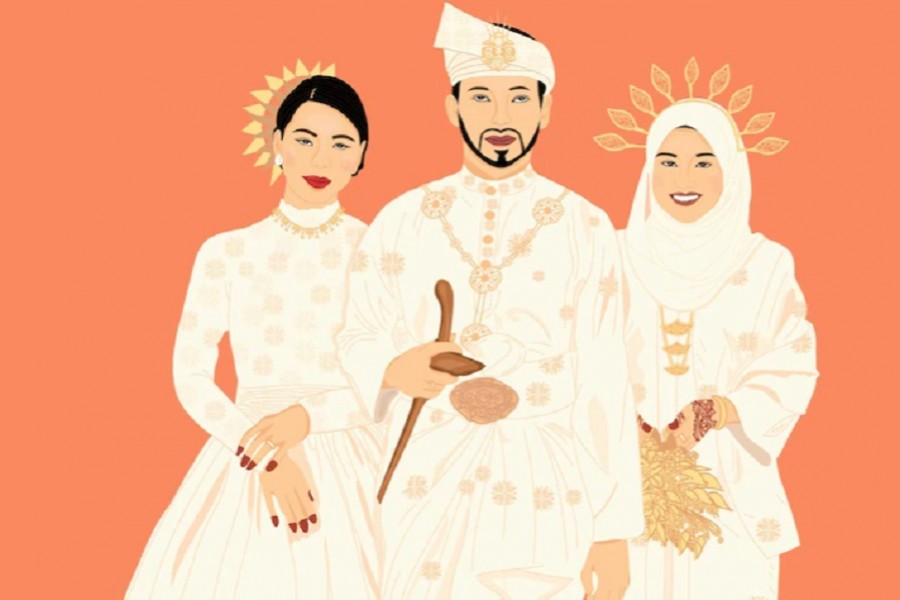The High Court on Wednesday questioned the legality of a section of the Muslim Law that allows male polygamy without ensuring equal rights for multiple wives.
The court issued a rule asking the concerned bodies of the government to explain in four weeks as to why section 6 of the Muslim Family Laws Ordinance, 1961 that permits polygamy without ensuring equal rights for wives should not be declared contradictory to the Constitution.
In the rule, the HC also asked the respondents to explain why they should not be directed to formulate a guideline in respect to the polygamy law in Bangladesh.
Secretaries to the Ministry of Law and the Ministry of Religious Affairs have been made respondents to the rule.
The HC bench of Justice M Enayetur Rahim and Justice Md Mostafizur Rahman passed the order following a writ petition filed by Supreme Court lawyer Ishrat Hasan challenging the legality of Section 6 of the Muslim Family Laws Ordinance, 1961.
Lawyers Ishrat Hasan and Jamiul Hoque Faisal appeared in the hearing on behalf of the writ petitioners, while Deputy Attorney General Bepul Bagmar represented the state.
The petition said, “The Quran permits polygamy for the male on a condition that he has to ensure equal rights among the wives. Although it is permissible to have up to four wives at a time, the Holy Quran urges to ensure equal rights for all wives. But the provision of the polygamy prescribed under section 6 of Muslim Family Laws Ordinance, 1961 neglected the issue of ensuring equal rights for all wives.”
Ishrat Hasan said, “Although the present wife is more likely to be harmed by the husband's polygamy, the Arbitration Council has been given the absolute power to allow another marriage in the law, which infringes on the present wife's Constitutional rights.”
She further said that the family court is the appropriate authority on Muslim Family Law, but important issues like polygamy have been referred to the Arbitration Council only, which is against the fundamental rights of women.
In the case of polygamy in other developed Muslim countries, court’s permission must be obtained after hearing the statement of the present wife and by submitting the certificates of health and financial capabilities, she said.
“In our country, there is no legal right for the Arbitration Council to take witness. So the provision of the polygamy should be amended,” added the lawyer.


